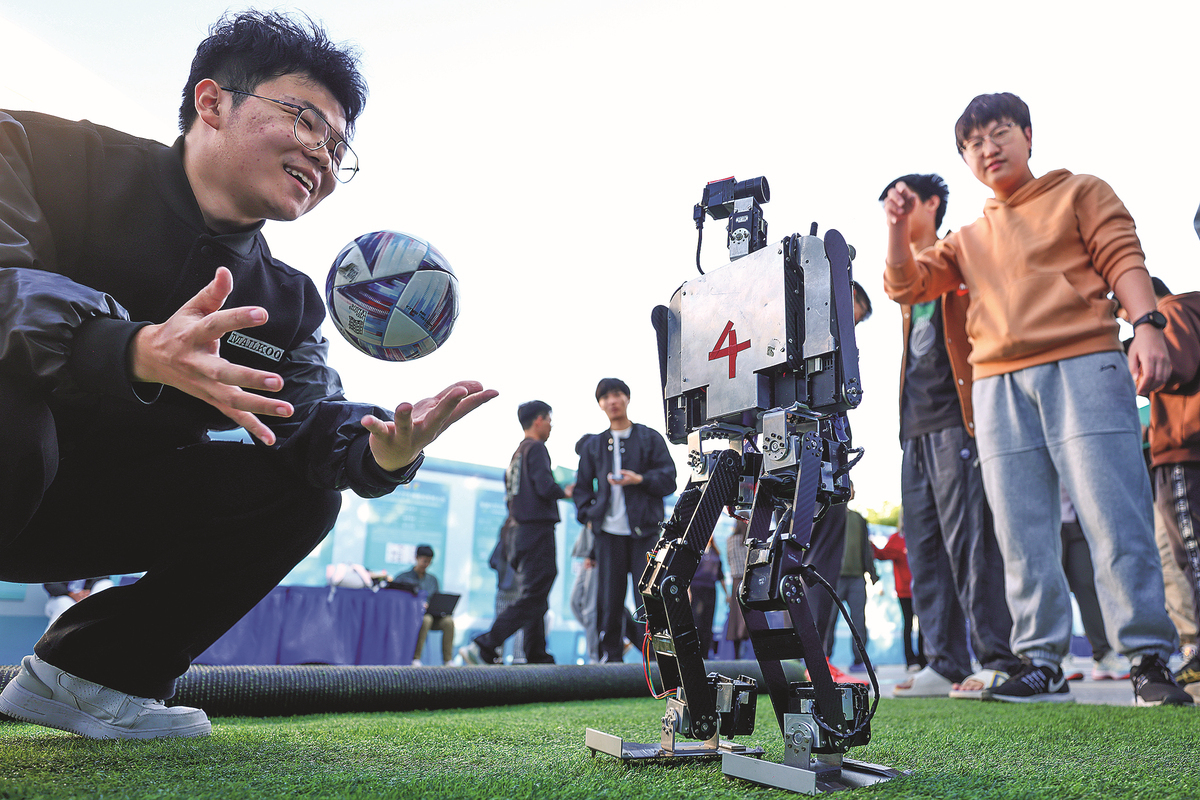Better-paying jobs can ignite students' passion for STEM


While taking a walk after a late lunch to get some exercise and to enjoy the winter sun, I noticed the middle school in my community had changed its name. For many years, it was named after the university it was affiliated with. Now it's called Science and Technology Branch of Beijing Middle School — considered by many to be the best senior high school in my district.
The neighborhood should be happy after finally getting a "good school". But what caught my attention were two Chinese characters in the name, ke ji, which mean science and technology. They indicated the school, apart from having the required curriculum, will focus more on teaching science and technology.
On checking further, I found out the new school is part of my district's efforts to promote science and technology education. The school is to be guided jointly by the Beijing Middle School Educational Group and five nearby universities. Being a branch of the district's "best school", it should impart high-quality education, with the five universities giving students access to their labs and arranging for lectures by their professors. The target is to rear talents interested in science and technology.
Determined to build the country into an innovation-driven economy, the Chinese leadership is leaving no stone unturned to lure talents to the science and technology sector. The central and provincial governments have been holding annual award ceremonies for scientists and engineers to acknowledge their contributions to the development of the country. Attractive bonuses are being offered, and special treatments in housing and healthcare provided to top-notch scientists, in an effort to popularize science education even in primary schools. More important, the central government has been increasing the budget for science and technology from year to year.
Such efforts are being made to ensure more and more students become interested in science and technology.
During my generation more than four decades ago, more than 70 percent of university students majored in science and technology. At that time, if one asked primary school students what their career dreams were, 90 percent were likely to say their dream was "to become a scientist or an engineer". Now the answers vary, with many kids choosing disciplines that will earn them more money.
Statistics from 2019 show that in China, about 45 to 48 percent university students majored in science, technology, engineering and mathematics (STEM) with the rest doing so in the liberal arts. Although China still ranks higher in terms of STEM college graduates than the United States, Germany, the United Kingdom and France — all below 40 percent — the rapid decrease in the number of STEM students should be worrying.
Given the importance of the advancement of science and demand for engineers to support China's huge manufacturing sector, the country requires more scientists and engineers. Some observers say the decreasing number of STEM graduates is the result of the unsatisfactory teaching quality in universities, the shortage of cross-disciplinary or interdisciplinary courses, inefficient guidance in selection of majors and some professors' inability to make courses interesting.
There may be many other reasons for the decline in the number of STEM graduates. But, to me, the best solution is to take measures to make jobs for STEM college graduates more respectable and better paying.
Only a small percentage of STEM college graduates can land a good job in a big company or university or get a chance to conduct research. Others have to forget about their majors and compete with the liberal arts and commerce graduates for jobs in the sales, marketing or civil service sectors.
Many workshops and construction sites are short of engineers, but their poor working condition and unsatisfactory pay stop many STEM college graduates from taking up such jobs.
Scientists and engineers should be accorded more respect and given better pay as recognition for their contribution to the country's development or to encourage them to build the country into an innovation-driven economy. Only when these steps are taken can STEM become more popular, and the country be able to get more talents in science and technology — and my community school have a better chance of attracting talented teenagers.

The author is former deputy editor-in-chief of China Daily.
kangbing@chinadaily.com.cn



































